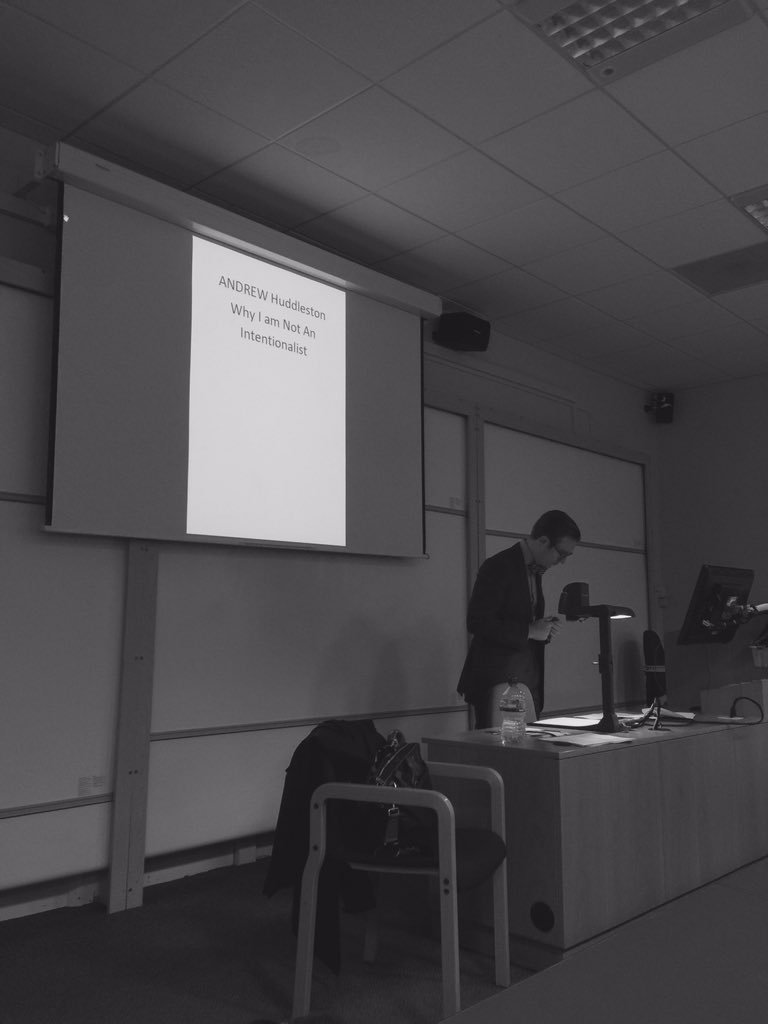Why I Am Not an Intentionalist
Dr Andrew Huddleston, Birkbeck, University of London
Wednesday 9th March, 5pm – 7pm, Keynes Lecture Theatre (KLT2), University of Kent
Whereas half a century ago, proclamations of authorial intentionalism would have met with an incredulous stare, the tables have turned, and intentionalism, of one form or another, seems to have become the dominant view, at least in analytic aesthetics. I have no complaint about the unobjectionable view that recovering intentions (or developing best hypotheses about them) and interpreting works accordingly are appropriate and important goals of critical inquiry. However, the intentionalists I oppose (potentially forms of both “modest actual” and “hypothetical,” in the current lingo) are those who want to go further, so as to have grounds for indicting people who are allegedly misinterpreting works of art by contravening the author’s intentions. These restrictive intentionalists want to use intention (or the best hypothetical reconstruction thereof) as a strong interpretive constraint, so that an interpretation which contravenes a successfully realized intention (or a hypothesis thereof) is thereby inappropriate. The view that I will defend in this paper is non-intentionalist. There are, I will maintain, good and legitimate interpretations of works of art that contravene the author’s realized intentions (or our best hypotheses thereof). The restrictive hermeneutical policy that the intentionalist champions is unwarranted, but we need to oppose it in a pluralistic spirit, by recognizing that there are a number of different worthwhile critical projects. In this paper, I seek to defuse several arguments given by intentionalists, and to give positive argument for non-intentionalism.

